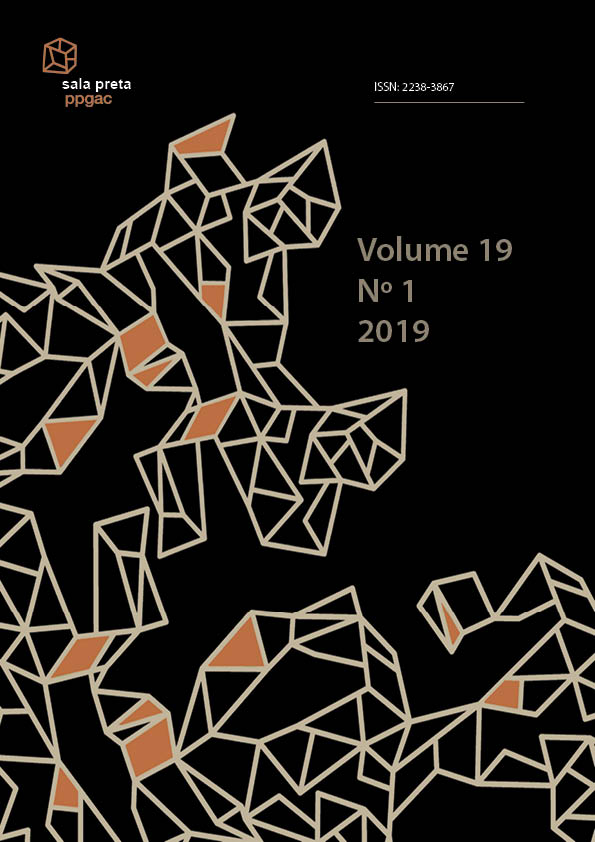We, the public
the exercise of representative mediation, in defense of the collective emancipation at MIT 2019
DOI:
https://doi.org/10.11606/issn.2238-3867.v19i1p288-305Keywords:
Political theater, Contemporary scene, Politics of reception, Theater and participationAbstract
This text analyzes presentations exhibited at the International Theater Festival of São Paulo (MIT) 2019, highlighting the different ways in which these works reinvent the public’s role and establish new relations between art and politics, as well as reinvigorate the social role of art. Real Magic, Boca de Ferro, Cria and MDLSX_Motus, in our reading, are works of resistance to the neoliberal logic, which is interfering in the fruition of the performative spectacle and also determining limits for the construction of the contemporary scene. We assume, therefore, a kind of analysis of the theatrical and dance works that expands the elements of performance to other instances, considering less tangible aspects at the very moment of the presentation, involving what is not widely visible there, but which does not stop interfering in the reception dynamics. The writings of Arthur Danto, Claire Bishop, Jacques Rancière, Jill Dollan, Milton Santos and Walter Benjamin, along with reports from the artists in picture, collaborate for the analyses; sources that allow us to describe some prerogatives of these differentiated actions before the scenic show, based on collaborative creation modalities, on the exhibition of production resources and institutions involved, on the aesthetic density of the scene, on the valorization of the unfinished, on the productive differentiation of the spectator community and on dissent, among other sharing operations. We argue that such works are the ones which can question the evidence of what we perceive and understand as the real, repealing the separation between those who dictate what should be or should not be thinkable and those who should think in agreement with the first.
Downloads
Downloads
Published
Issue
Section
License
Os leitores são livres para compartilhar, copiar e redistribuir os textos publicados na Sala Preta, sem fins comerciais e em qualquer suporte ou formato, desde que sejam dados os créditos apropriados ao(s) autor(es) e à Revista. Podem também adaptar, remixar, transformar e criar a partir deste material, desde que distribuam o material derivado sob a mesma licença do original – e mantenham a menção explícita ao(s) autores e à Revista Sala Preta.
Ao submeter um artigo à Sala Preta e tê-lo aprovado para publicação os autores concordam com os termos da Licença Creative Commons Atribuição-NãoComercial-CompartilhaIgual 4.0 Internacional.


